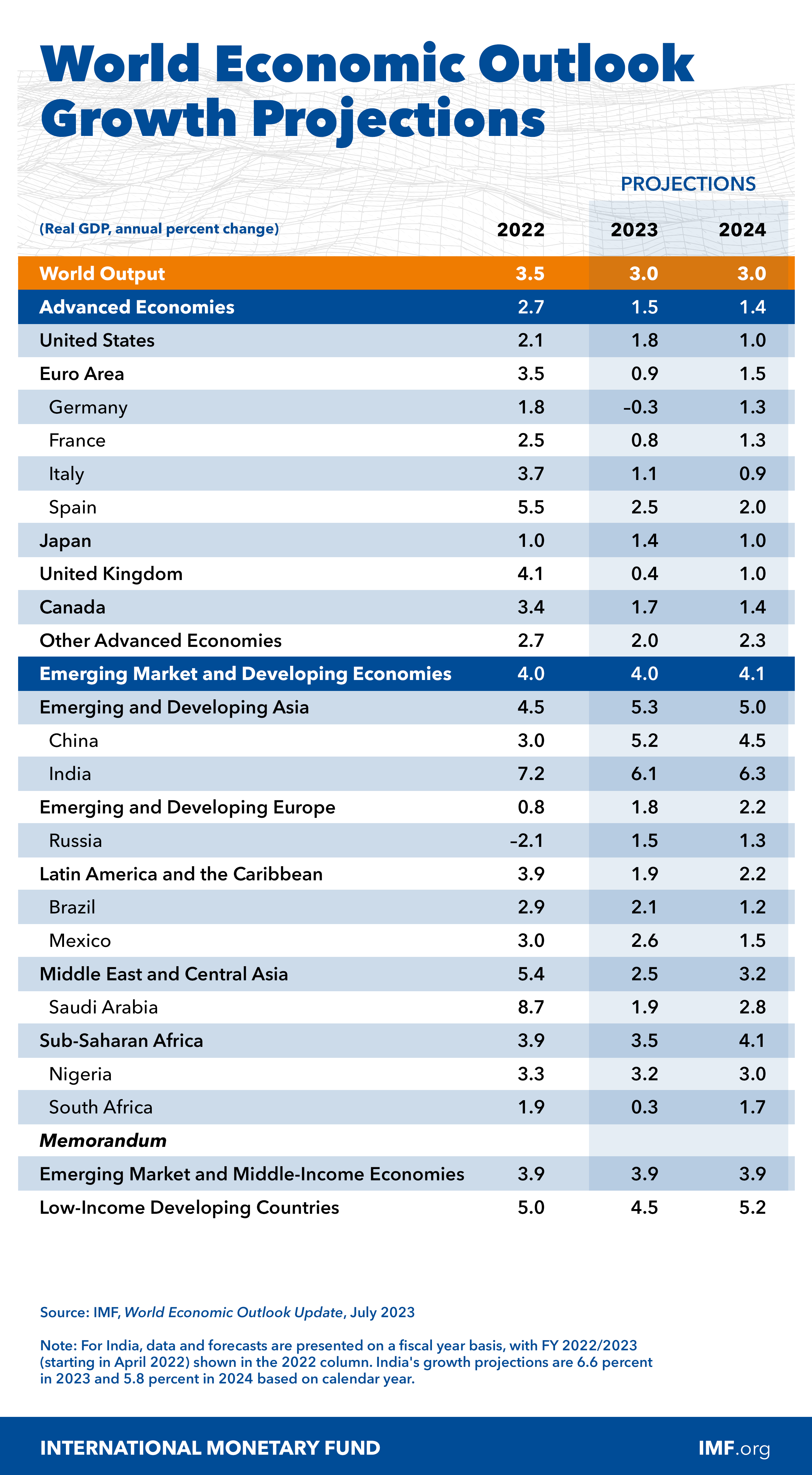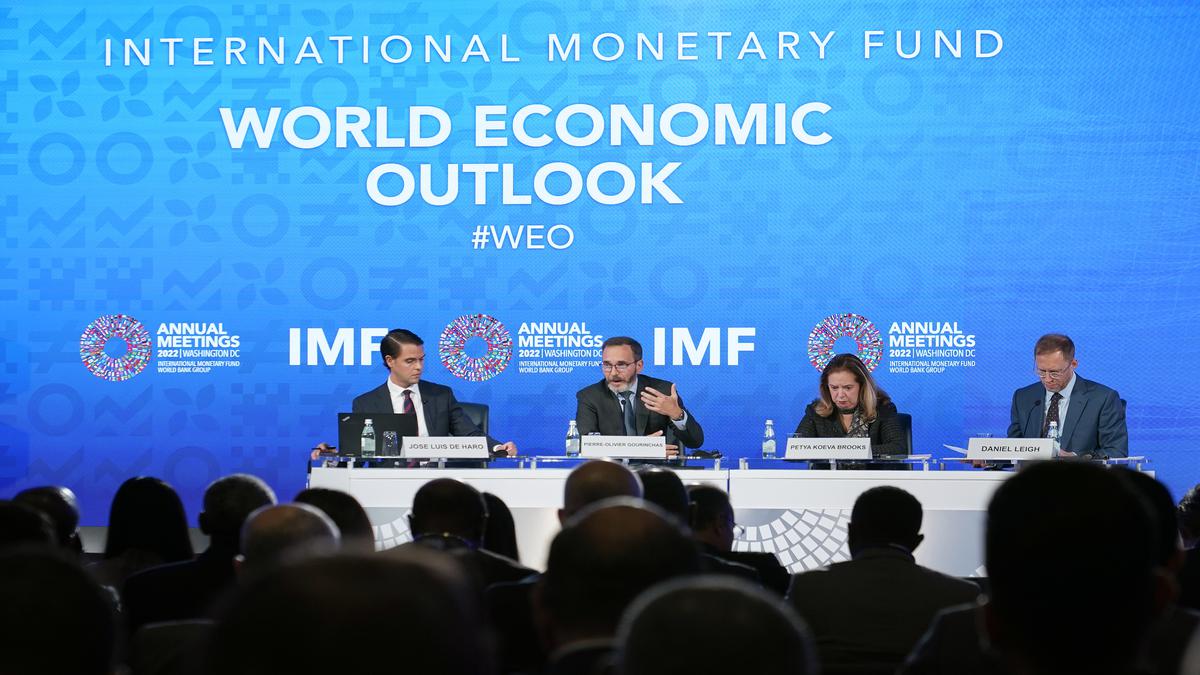The International Monetary Fund (IMF) has recently revised India’s GDP growth forecast for the current fiscal year to 6.1%, up from the previous prediction of 5.9%. This upward revision is attributed to stronger domestic investments and reflects the momentum from stronger-than-expected growth in the fourth quarter of 2022 (FY23). The IMF’s latest World Economic Outlook also raises the baseline forecast for world growth to 3% in the year 2023, amid reduced chances of a US recession and falling inflation.
India’s GDP Growth Forecast Upgraded:

- IMF raises India’s GDP growth forecast for the current fiscal year (FY23) to 6.1% from the previous projection of 5.9%.
- The upward revision is attributed to stronger domestic investments, contributing to the growth momentum observed in the fourth quarter of 2022.
Positive Outlook for India’s Economy:
- The calendar year 2023 growth projection for India stands at 6.6%, indicating a positive outlook for the country’s economic performance.
- This upward revision aligns with the growth forecasts presented by the government and the Reserve Bank of India (RBI), which have pegged GDP growth at 6.5% for FY24.
- Multilateral agencies like the Asian Development Bank and Fitch have also raised their growth forecasts for India, indicating confidence in the country’s economic recovery.
Global Economic Recovery:
- The IMF’s World Economic Outlook predicts a global GDP growth of 3% in 2023, up from the previous forecast of 2.8%.
- The resolution of the US debt ceiling standoff and decisive actions taken by authorities to address banking turmoil have reduced immediate risks to the global financial sector.
- The global economy continues to recover gradually from the COVID-19 pandemic and the impact of Russia’s invasion of Ukraine.
Risks and Concerns:
- While progress is evident, the IMF notes continued risks to global financial stability.
- Concerns include higher interest rates, a slower-than-expected recovery in China, debt distress in emerging economies, and threats to trade from geo-economic fragmentation.
- Global inflation is projected to decline from 8.7% last year to 6.8% this year, but it remains relatively high, affecting household purchasing power and constraining economic activity.
About IMF, Key points:
- The International Monetary Fund (IMF) is an international financial institution established in 1944 to promote global economic stability and cooperation.
- Its main goal is to ensure the stability of the international monetary system and facilitate international trade.
- The IMF provides financial assistance and policy advice to member countries facing economic difficulties or balance of payments problems.
- It conducts economic surveillance and analysis to monitor global economic trends and potential risks.
- The IMF also offers technical assistance and training to member countries to strengthen their economic and financial capabilities.
- It consists of 190 member countries, each of which contributes funds to the IMF based on its economic size and needs.
- The IMF’s decision-making power is determined by the size of a country’s financial contribution, with larger economies having more influence.
- The IMF’s headquarters is located in Washington, D.C.
- Some of the key publications released by the IMF include:
-
World Economic Outlook (WEO): This report is published twice a year and provides comprehensive economic analysis, growth projections, and macroeconomic forecasts for both individual countries and the global economy.
-
Global Financial Stability Report (GFSR): The GFSR assesses global financial markets and potential risks to financial stability, offering insights into financial sector developments and vulnerabilities.
-
Find More News on Economy Here




 Which Painting is known as the Indian Mo...
Which Painting is known as the Indian Mo...
 Which Indian State was the First to Chan...
Which Indian State was the First to Chan...
 Govt To Launch CBDC-Based Food Subsidy P...
Govt To Launch CBDC-Based Food Subsidy P...








